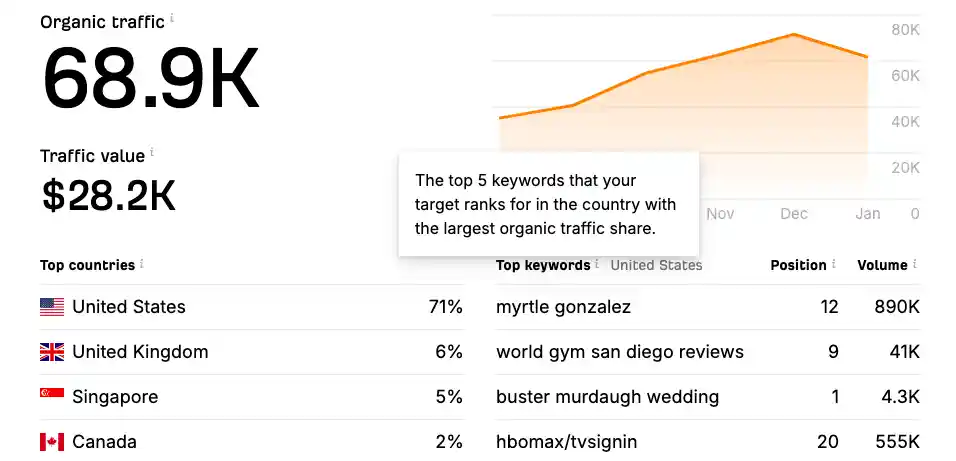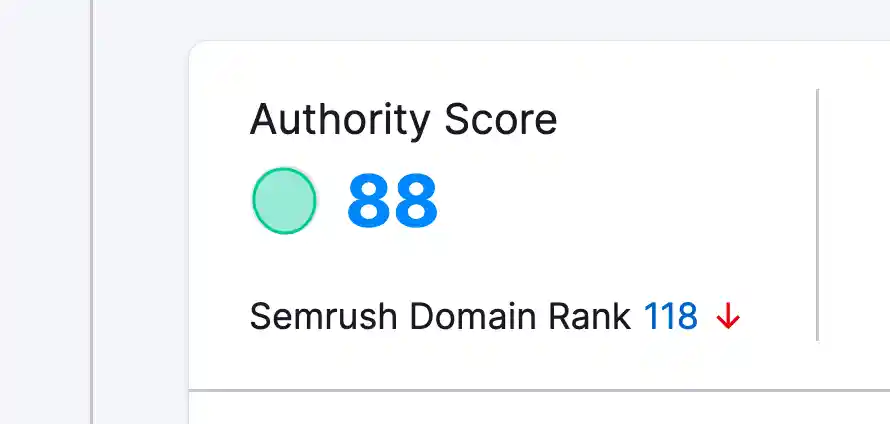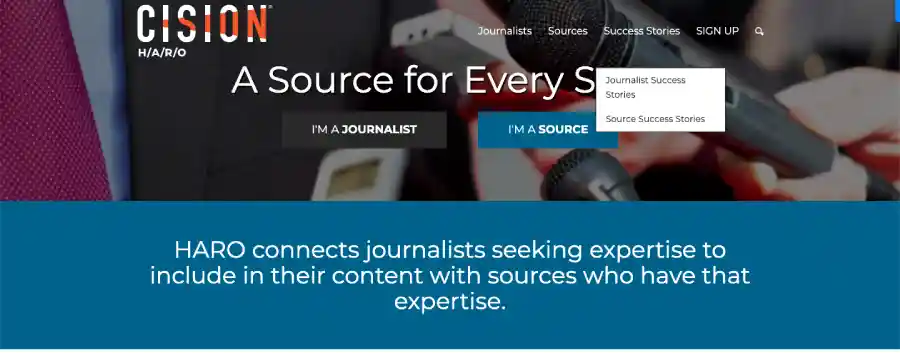Link Building Services for High Authority
- Home
- Link Building
Link Building
Link Building Mastery: My Detailed Strategy
When I start Link Building for your business, the first thing I do is get to know all about what you do, your industry, and the services you offer. It’s important for me to understand your business well so I can make a plan that fits just right.
Next, I’ll look over your website. This includes doing a competitor analysis, keyword research, and content audit. It’s to find the right keywords you need to be better than your competitors.
I use special tools like Ahrefs, Semrush, and Ubersuggest for this. These tools are really helpful in finding the right keywords for your website. I also check if your website already talks about these keywords. If it doesn’t, I can help you create content that includes these important words.
The last step in Link Building is to get links from other websites to yours. But not just any links – they need to be from websites that are well-known and trusted, and that have something in common with your business. These kinds of links are like a thumbs-up for your website; they tell search engines that your site is good and trustworthy.
Here are some popular ways to get more links for your website:
- Content Marketing: Create valuable content that others want to link to.
- Email Outreach: Contact website owners and ask for links.
- Broken Link Building: Replace broken links with your content on other sites
- Unlinked Brand Mentions: Ask for links when your brand is mentioned.
- PR (Public Relations): Get media coverage with links back to your site.
These are just a few of the many strategies for building links. Now, let’s dive deeper into the details. This is your beginner’s guide to link building in SEO.
How I Pick Websites for Links
- Domain Rating (DR): I look for websites with a DR of 50 or more on Ahrefs. But sometimes I make exceptions.
- Organic Traffic: The website should have at least 1,000 visitors from search engines.
- Traffic Relevance: Where the visitors are from and if they match your target audience.
- Keyword Ranking: If the website ranks well for keywords that matter to your business, it’s a good choice.
- Outbound Links: I check if the website links to low-quality sites. If it does, it’s a no-go. Bad links can get you in trouble with Google.

In short, I take a careful and thorough approach to link building. I make sure to understand your business and use the right tools to find the best keywords. Then, I focus on getting links from high-quality, relevant websites. This way, you get links that really help your website and avoid any problems with search engines.
Why Link Building is Really Important for Your Website
Link building is like making friends on the internet to help your website become more popular. When other websites link to your site, it’s like they are saying, “Hey, check this out, it’s good!” This helps more people find your website.
The Big Benefits of Link Building
- Better Ranking in Search Results: When lots of websites link to yours, search engines like Google think your site is important and show it higher in search results.
- More Visitors from Other Sites: Links on other websites can lead people directly to your site. This means more visitors who are interested in what you offer.
- Looking More Trustworthy: If well-known websites link to your site, it makes your site look more trustworthy and serious.
- Making New Friends Online: Link building means reaching out to other website owners. This can lead to new friendships and opportunities to work together.
- Making Your Site More Helpful: By linking to other useful information, your site becomes more helpful to visitors. They’ll like your site more because it’s useful.
- Staying Ahead of Competitors: If your site has better links than your competitors, it will likely rank higher and be more visible.
How to Do Link Building the Right Way
Easy Guide to Link Building Tactics
1. Ask for Links
This is when you reach out to other websites and ask them to link to your site. You can ask them to link to different things like:
- Blog posts
- Detailed guides
- Ebooks
- Infographics
- Case studies
- Research and data
Tools like Semrush’s Link Building Tool can help you find people to contact. I’ll explain more about how to do this in the “Best Backlink Building Strategies” part.
2. Add Links
Adding links means you go to other websites and put your link there yourself. You can do this on:
- Social media profiles
- Business directories
- Forums, communities, and Q&A sites (like Quora)
- Blog comments
- User profile pages
But remember, this way of adding links is super easy but not always effective. These links are often from places that don’t matter much to Google. That’s because you’re the one putting them there, which is like giving yourself a pat on the back. Google prefers links that other people give you because they think your site is useful. These self-added links don’t hurt you, but they don’t help much either. It’s better to get links naturally.
3. Earn Links
Earning links is the best way. This happens when other websites link to you without you asking. The key to earning links is to make great content that people want to share. When your content is really good or useful, people will link to it because they think it’s helpful for their readers.
Types of content that often get links include:
- Infographics and visuals
- Original research and data
- Online tools and calculators
- Comprehensive guides and tutorials
To get ideas for content, you can look at what kinds of things get linked to on your competitors’ websites. I’ll go into more detail on how to do all this in the “Best Backlink Building Strategies” section.
What Makes a Good Backlink?
A good backlink is like a thumbs-up from one website to another. It’s not just any link; it’s a special kind that really helps your website. Let’s break down what makes a backlink great:
1. Relevance
Imagine your website is a book in a big library. A good backlink comes from a book in the same section. For example, if your website is about cooking, a link from a food blog is perfect. This tells search engines that your site is useful for people interested in cooking.
2. Authority
Links from big, well-known websites are like gold. These sites are like popular kids in school; when they talk about you, everyone listens. So, a link from a site like BBC or a major player in your industry is super valuable.

It’s like getting a recommendation from an expert.
3. DoFollow Vs. NoFollow
There are two types of links: DoFollow and NoFollow. DoFollow links are the ones that really count. They’re like telling search engines, “Hey, check this site out!” They help your website rank higher in search results.
Here’s a dofollow link with no attribute:
<a href=”https://example.com”>Anchor Text</a>
4. Good Anchor Text
Anchor text is the words you click on in a link. It’s best when these words are related to your site but not too pushy or salesy. For example, if your site providing professional services (PRO) for seamless business operations, a link with the anchor text “PRO services in UAE” is great. It’s clear and to the point.

5. Placement in Main Content
Where your link is on a page matters a lot. Links in the main part of a webpage, like in an article or a blog post, are way better than links hidden in the footer or sidebar. It’s like being on the main stage instead of backstage. These links are more likely to be clicked and seen as important.
So, a good backlink is relevant, comes from a trusted site, is a DoFollow link, has good anchor text, and is placed in the main content of a webpage. These kinds of links are like a big high-five for your website, telling search engines that your site is worth noticing.
Best Link Building Strategies
Building links to your website can really help it show up better in search engine results. Here are some of the best ways to do it:
Creating Shareable Content
Start by making content that’s so good, people want to share it. This could be detailed guides, interesting blog posts, or cool infographics. The idea is to make something that’s really useful or interesting so that other websites want to link to it. This way, you’re not just getting links; you’re also giving your readers valuable information.
Guest Blogging
Write articles for other blogs in your industry. When you do this, you can add a link back to your website. This is a great way to get your name out there and get a backlink at the same time. Plus, you can reach a whole new group of people who might be interested in what you do.
Fixing Broken Links
Look for broken links on other websites and suggest your own content as a replacement. This is helpful because you’re helping someone fix a problem on their site, and in return, you get a link back to your site. It’s a win-win situation.
Using Social Media
Share your content on social media platforms. This can help more people see your content. Even though most social media links don’t directly help with SEO, they can lead to more people seeing and sharing your content, which can lead to more natural backlinks.
Outreach

Outreach is an important part of growing your website’s presence online, especially when it comes to getting more links to your site. This process is not just about sending emails. It’s about making connections, giving something of value, and building relationships that help both sides.
Understanding Outreach in Link Building
1. What is Outreach?
Outreach in SEO means contacting other website owners, bloggers, or influencers in your field to get a backlink. A backlink is a link from another website to yours. These links are great because they bring more visitors to your site and help your site rank higher in search engines.
2. Making a Good Outreach Plan:
A good outreach campaign starts with finding the right websites in your area. You need to research and find sites that match your content and audience. Your messages should not be the same for everyone. Make them personal. Show that you understand their content and how working together can be good for both of you.
Steps in the Outreach Process
1. Research First: You need to research to find potential websites for link building. This includes looking at where your competitors get their links and finding popular sites in your area.
2. Personal Touch: Your messages should be personal. This means talking about their specific articles or explaining why your partnership is a good idea. This shows respect and understanding of their work.
3. Offer Something Valuable: Your outreach should offer something useful, like a guest post, an interesting infographic, or unique research. This makes it more likely they will say yes and helps start a long-term relationship.
4. Keep in Touch: If you don’t get a reply, it’s okay to send another email after a week or two. Once you get a backlink, keep in touch for more opportunities in the future.
More Than SEO: The Bigger Picture
- Better Visibility and Respect: Getting links from good sites makes your site more visible and respected in your field.
- More Connections and Opportunities: Outreach helps you meet new people and find chances to work together, like joint projects or business partnerships.
- Reach More People: Good backlinks mean more people visit your site. This can lead to more followers on social media, more customers, and loyal fans.
Outreach for link building is more than just getting higher in search rankings. It’s about building relationships that help your online presence grow. By understanding outreach and always offering value, you can open new doors for your brand. Remember, successful outreach is both creative and analytical.
Joining Online Communities
Be active in online forums and communities related to what you do. Share your knowledge and include links to your content when it makes sense. This can help you become known as an expert in your field, and people might start linking to your content because they find it helpful.
Creating Visual Content
Make things like infographics, charts, or videos. People love to share this kind of content, which can lead to more backlinks. Visual content is often easier to understand and more engaging, so it gets shared a lot.
Turning Brand Mentions into Links
If someone mentions your brand but doesn’t link to you, ask them to add a link. This is an easy way to get a backlink because they’re already talking about you. All you have to do is ask them to add a link.
Using HARO

Sign up for Help A Reporter Out (HARO). You can answer questions from journalists and get links from news sites. This is a great way to get high-quality backlinks because news sites are usually seen as very trustworthy.
Checking Competitors’ Backlinks
Look at where your competitors are getting their backlinks and try to get links from the same places. This can be a good strategy because you know these sites are already interested in content like yours.
In summary, building backlinks is about creating great content, reaching out to others, and being active in your community. By using these strategies, you can get more high-quality backlinks, which can help your website rank better in search engines.
How I Build Links: A Simple Explanation
Building links to your website is like making connections in a big network. Over the years, I’ve used a bunch of different good (or “white-hat”) methods to do this. Here’s how I usually go about it:
1. Fixing Broken Links
This is like finding a broken chain link and replacing it with one from your own chain. I look for links on other websites that don’t work anymore and suggest they use a link from my website instead.
2. Link Reclamation
This is like reminding someone they forgot to mention you. Sometimes, websites talk about your website but don’t link to it. I reach out and ask them to add a link.
3. Creating Linkable Content
I make content that’s like a magnet for links. This includes really informative posts or interesting statistics that other websites want to link to because they’re useful or cool.
4. Guest Posting
Right now, this is my favorite way to build links. I write articles for other websites. These articles are really good and useful for those websites. When I write for them, I include a link back to my own website.
5. Working with Communities and Partners
I’m part of groups and communities where we help each other build links. I also have partners in different areas or topics. We work together to create links that help all of our websites.
So, building links is a lot about making connections and offering something valuable, like a great article or a useful resource. This way, other websites are happy to link to yours.
Let’s collaborate on a tailored link building campaign that drives quality traffic and enhances your online presence. Give me a chance to show you the power of strategic backlinks
Best SEO Packages: Get Ranked Higher, Get More Traffic, Get More Leads with Expert SEO Services
Basic
Choose Plan
What’s included
5 links Total
High quality post with 1,000 words
Organic monthly traffic of 1,000
Domain Authority of DA 30+
Domain Rating of DR 20+
Published in 3 days
Strategic Link-Building
Reseller-friendly Reporting
Professional
Choose Plan
-
What’s included
10 links Total
High quality post with 1,000 words
Organic monthly traffic of 2,000
Domain Authority of DA 30+
Domain Rating of DR 20+
Published in 3 days
Strategic Link-Building
Reseller-friendly Reporting
Business
Choose Plan

